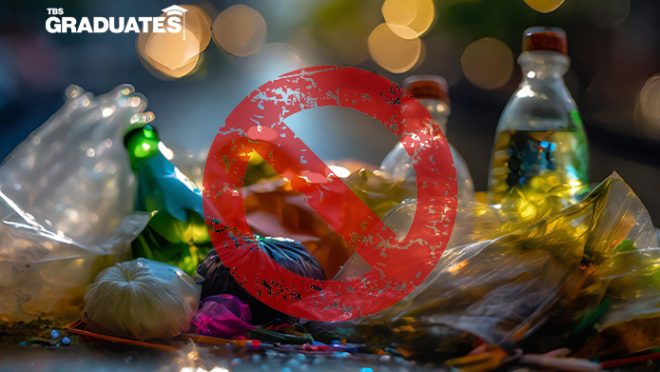International Day of Zero Waste: The Bangladeshi struggle of waste management
International Day of Zero Waste: The Bangladeshi struggle of waste management

Amidst global efforts to minimise environmental pollution and promote sustainable living, it’s crucial to reflect on Bangladesh’s effort at sustainable waste management on this year’s International Day of Zero Waste.
Bangladesh faces significant challenges in managing its waste effectively as a nation grappling with rapid urbanisation, population growth, and industrialisation. While strides have been made in recent years, achieving zero waste remains a distant reality.
Evaluating the current landscape of waste management, recycling initiatives, and public awareness efforts provides insight into both the progress made and the obstacles that lie ahead in realising this vision.
The International Zero Waste Day was initiated by the United Nations in 2022 and was first celebrated by Bangladesh last year.
Bangladesh celebrating World Pollution Day or Zero Waste Day, however, feels like rubbing salt on a wound as our indexes and statistics make us ponder how far we are from the zero-waste dream.
A recent survey by the Bangladesh Bureau of Statistics (BBS) titled “Municipal Waste Management (MWM) Survey 2022” demonstrated that only 3.15% of the 80 lakh tonnes of solid waste the 342 municipalities produced in the 2020-2021 fiscal year were recycled.
In addition, only 15.59% of the solid waste across the nation was recycled in 2020-2021. The rest of the waste went to landfill.
According to BBS, 340 municipalities had 494 landfills in 2020-21. This harrowing condition of waste recycling clearly necessitates us to move forward and adopt an efficient waste management system.
There have been many deliberations about implementing policies and laws to sort waste properly but to no avail.
How our rethinking can reshape the scenario
Many debates exist on why we cannot successfully enact and exercise sustainable waste management policies.
However, my agenda today focuses on a cognitive what and which rather than how, as the mental preparedness required to undergo policy corrections and applications in our country is often neglected.
Starting at the root level – such as a shift in several key mindsets and behaviours at both individual and societal levels – can be the most fruitful rather than institutional interventions.
It all starts from transitioning from a disposable culture, where products are used once and discarded, to one that prioritises reuse and repair.
Encouraging individuals to repair items rather than replace them, and opting for reusable alternatives to single-use products, can significantly mitigate waste generation.
Reframing the perception of waste from a mere problem to a valuable resource is also essential. It involves considering waste as a potential source of raw materials for recycling, composting, or energy generation promotes a circular economy mindset, aiming to prolong resource usage.
In a country like ours, where resources are not abundant, and people squander a lot, we can evolve our resource-saving and recovering mindset by understanding and enjoying the perks of waste resources over time.
Moreover, trash management is often seen as a responsibility for sanitation workers or recycling plants. As long as it remains as “someone else’s problem”, things will never improve.
Taking ownership of our waste — from generation to disposal — encourages responsible consumption and participation in solutions. Empowering individuals to take personal responsibility for waste reduction, proper sorting, and recycling fosters sustainable decision-making that can start from our daily routines.
We are often driven by the “Out of sight, out of mind” principle. Once we throw something away, we often do not think about it again. Understanding the environmental impact of landfills and considering the potential for reuse or recycling can change this mentality.
In this scenario, understanding the life cycle of every object can be a game changer. When we think about the production, transportation, use, and end-of-life disposal of anything, that can help guide us toward a more sustainable consumption behaviour.
For example, packaging meals with reusables takes more effort than grabbing a disposable option. However, prioritising reusables and planning for less waste creation daily will be more environmentally friendly in the long run.
Community engagement and innovation are also vital for improving waste management. Involving communities in activities like clean-up events and recycling drives fosters collaboration and environmental stewardship.
Additionally, supporting entrepreneurship and investing in green technologies drive positive changes in waste management practices.
The government has a big role to play in this, and it needs cooperation from the citizens as well.


